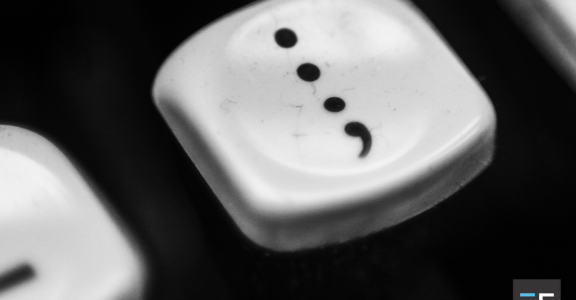Everyone makes the occasional typo or grammatical slip-up. That’s why we have editors—and Facebook friends who insist on correcting our use of whose vs. who’s or there, their, and they’re (“It was two in the morning, and I was texting from my phone in the dark, Jeremy! Give me a break!”).
 In informal situations a grammatical misstep isn’t serious (unless you’re Jeremy), but similar mistakes make professional writing look sloppy and detract from your message. Rightly or not, people see grammatical errors as a sign of disorganization, which affects your branding and reputation.
In informal situations a grammatical misstep isn’t serious (unless you’re Jeremy), but similar mistakes make professional writing look sloppy and detract from your message. Rightly or not, people see grammatical errors as a sign of disorganization, which affects your branding and reputation.
This brings us to the problem of whose vs. who’s and which to use when. Like its/it’s and there/their/they’re, whose vs. who’s is one of those common grammar problems that isn’t as complicated as it seems. The two words are used in entirely different circumstances.
Using Whose Correctly
Whose is the possessive form of the pronoun who, just as your is the possessive form of you. Whose generally appears before a noun (or an adjective preceding a noun) to denote ownership or association with the noun:
- Whose turn is it to wash the dishes?
- Jeremy is a football player whose aggressive nature earned him the nickname “the Crusher.”
- Whose toenail clippings are these, and why are they in my bed?
Who’s—a Contraction of “Who Is”
Who’s is not a possessive pronoun. This explains much of the confusion in the whose vs. who’s dilemma. Adding an apostrophe plus s to a word usually makes it possessive:
- The man’s dirty dishes
- The football player’s aggression
- The disgusting animal’s toenails
In contrast, who’s is a contraction of “who is” or “who has”:
- Who’s been forgetting to wash the dishes?
- Who’s just been sacked by the Crush?
- Who’s been clipping his toenails in my bed?
Checking the Usage of Whose vs. Who’s
The simplest way to check if you’re using whose and who’s correctly is to substitute “who is” or “who has” for either word and see if the sentence makes sense. For instance, let’s use the following sentence:
- Whose toenails are these?
When substituting “who is,” you get “Who is toenails are these?” That makes no sense, so whose is the correct word to use. Only use who’s as a substitute for “who is” or “who has,” and you’ll be fine.
(And in case you were wondering, those were Jeremy’s toenails. The man’s a monster.)
Resources
http://writingexplained.org/whose-vs-whos-difference








